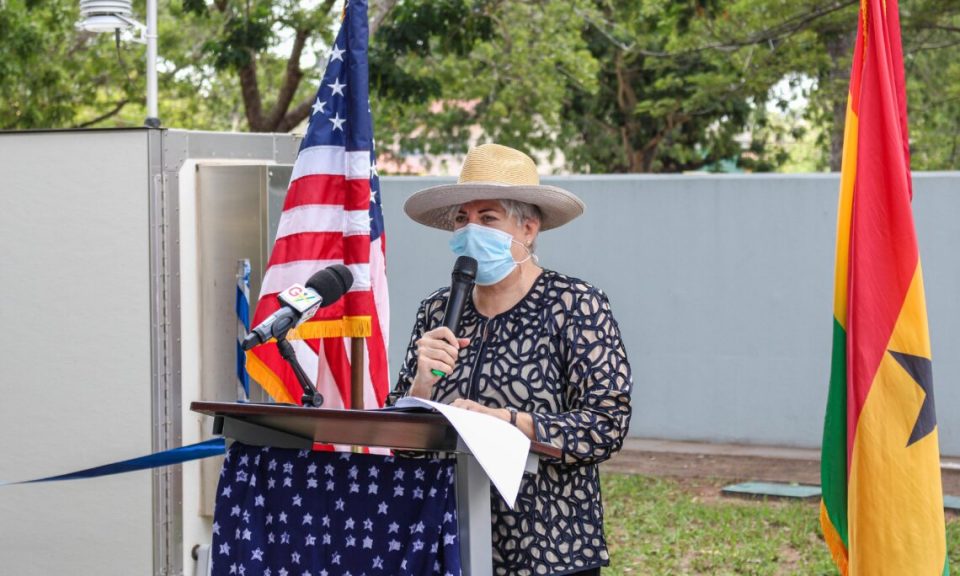Today, U.S. Ambassador Stephanie S. Sullivan inaugurated an air quality monitoring station on U.S. Embassy grounds in Cantonments, Accra together with Hon. Henry Kwabena Kokofu, Executive Director of EPA Ghana representing Minister for Environment, Science, Technology, and Innovation (MESTI); Prof. Sandow Mark Yidana, Dean, School of Physical and Mathematical Sciences, University of Ghana; and other senior officials. It is the third of three air monitoring stations in Accra. The Environmental Protection Agency (EPA) Ghana, with the support of the World Bank Pollution Management and Environmental Health project, installed two other state-of-the-art air quality monitoring systems – one at the University of Ghana in Legon and another at the St. Joseph’s Roman Catholic Basic School in Adabraka. Today’s event serves to commission all three monitoring stations.
“These monitoring stations help scientists, researchers, government officials, and the public understand the data in real-time, as we work together to identify and mitigate sources of harmful air pollution. Air pollution, just like the climate crisis, threatens our health and our prosperity. We are happy to work today with our partners to share information that can lead to solutions,” said U.S. Ambassador Stephanie S. Sullivan.
The collaboration among the U.S. Embassy in Accra, EPA Ghana, the University of Ghana, the U.S. Environmental Protection Agency, the World Bank Group, and other partners to establish three air quality monitoring stations in Accra will provide state-of-the-art, timely data on air pollution in the Accra Metropolitan Area.
All three monitors measure PM2.5 black carbon (a component of PM2.5) as well as weather data, such as temperature, relative humidity, pressure, wind speed, and wind direction. The particulate matter monitors, black carbon analyzers, and weather stations will provide high quality data on a continuous basis.
The data from all three monitoring stations will enable government agencies to inform the public about the current level of air quality and steps the public can take to reduce exposure to pollution. This data can also help the Ghana EPA and the Accra Metropolitan Assembly formulate strategies, policies, and decisions to reduce air pollution and improve public health. In addition, the data from the station will be available to scientists, academics, and students for educational and research purposes.
These stations complement the Air Quality Management Plan for the Greater Accra Metropolitan Area launched in 2018.


